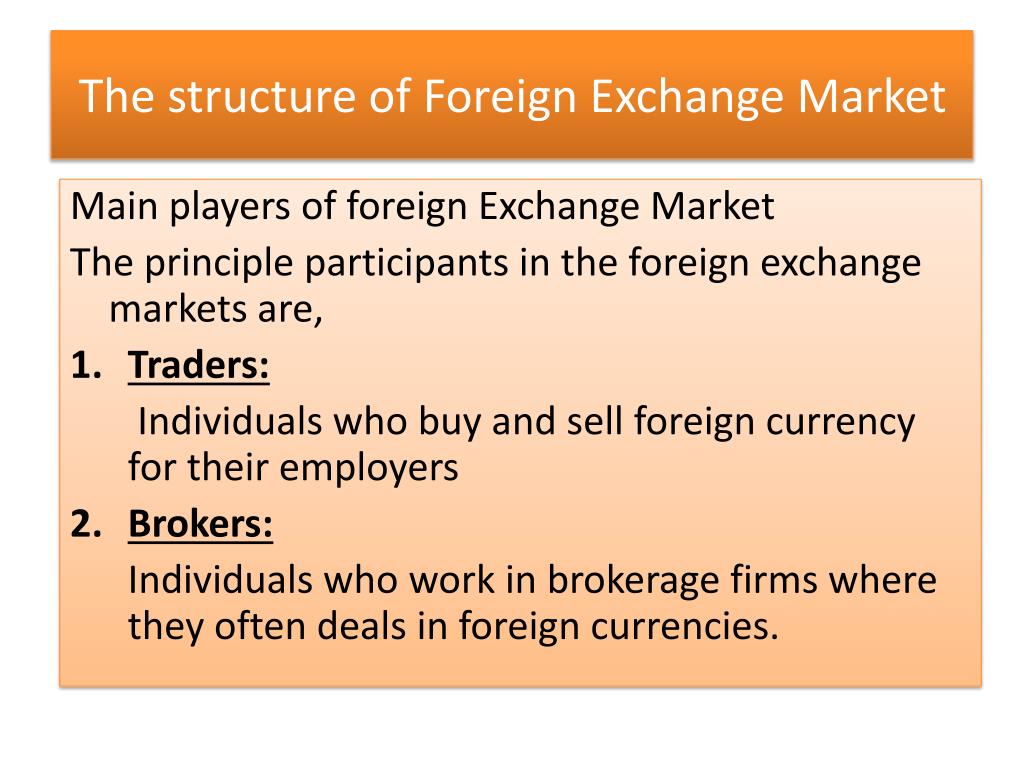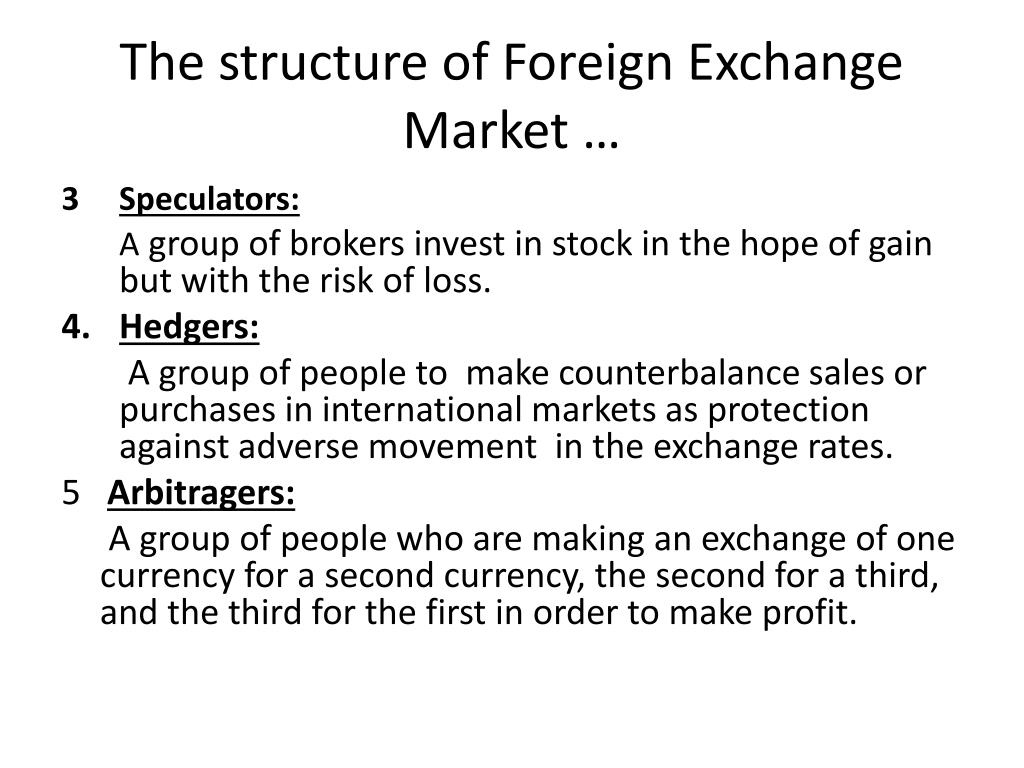Short explanation of foreign exchange market – The foreign exchange market, a global marketplace where currencies are traded, plays a crucial role in the world economy. This intricate network connects businesses, investors, and governments, facilitating international trade and investment.
Delving deeper into this dynamic market, we’ll explore its participants, transaction types, influencing factors, regulatory frameworks, and the inherent risks and rewards associated with foreign exchange trading.
Definition of Foreign Exchange Market

The foreign exchange market, also known as forex or currency market, is a global decentralized marketplace where currencies are traded. It involves the exchange of one currency for another, facilitating international trade and investment.
Do not overlook explore the latest data about foreign direct investment pdf.
The foreign exchange market plays a crucial role in the global economy by enabling businesses to engage in international transactions, facilitating cross-border investments, and providing liquidity for financial institutions. It also influences exchange rates, which affect the relative prices of goods and services in different countries.
Participants in the Foreign Exchange Market
The foreign exchange market is a vast and diverse network of participants, including:
- Banks and financial institutions: They act as intermediaries, facilitating currency transactions for their clients.
- Corporations: They exchange currencies to pay for goods and services in foreign markets or to invest abroad.
- Governments and central banks: They intervene in the market to influence exchange rates or manage their foreign exchange reserves.
- Individual investors: They trade currencies for speculative purposes or to hedge against currency fluctuations.
Factors Affecting Foreign Exchange Rates
Foreign exchange rates are influenced by various factors, including:
- Economic growth: Stronger economic growth in a country typically leads to a higher demand for its currency.
- Interest rates: Higher interest rates in a country can attract foreign investment, increasing the demand for its currency.
- Political stability: Political instability or uncertainty can lead to currency depreciation.
- Global economic conditions: Events such as recessions or wars can affect the demand for currencies.
Participants in Foreign Exchange Market: Short Explanation Of Foreign Exchange Market

The foreign exchange market, also known as Forex, is a global decentralized market for trading currencies. It involves a wide range of participants with diverse roles and motivations.
Commercial Entities
- Importers and Exporters: Businesses engaged in international trade need to exchange currencies to settle transactions.
- Multinational Corporations: Companies with operations in multiple countries require currency conversion for various purposes, such as paying salaries, investing, and sourcing materials.
Financial Institutions
- Commercial Banks: Banks facilitate currency exchange for their clients and engage in foreign exchange trading to manage risk and generate profits.
- Investment Banks: Investment banks provide foreign exchange services to institutional clients, including hedging, trading, and portfolio management.
- Hedge Funds: Hedge funds use foreign exchange trading as a strategy to generate alpha returns and diversify their portfolios.
Central Banks
- Monetary Authorities: Central banks intervene in the foreign exchange market to manage their currencies’ values and maintain economic stability.
- Sovereign Wealth Funds: Government-owned investment funds invest in foreign exchange markets to diversify their reserves and generate income.
Retail Investors
- Individual Traders: Retail investors speculate on currency movements and trade foreign exchange using online platforms.
Other Participants
- Brokers: Forex brokers facilitate currency trading by connecting buyers and sellers.
- Electronic Trading Platforms: These platforms provide an electronic infrastructure for foreign exchange trading.
Types of Foreign Exchange Transactions
Foreign exchange transactions encompass a wide range of activities involving the conversion of currencies for various purposes. These transactions play a crucial role in international trade, investment, and tourism.
You also can investigate more thoroughly about function of foreign exchange market ppt to enhance your awareness in the field of function of foreign exchange market ppt.
The types of foreign exchange transactions can be broadly classified into two main categories: spot transactions and forward transactions.
Spot Transactions
Spot transactions involve the immediate exchange of currencies at the prevailing market rate. They are typically used for small-value transactions and for settling international trade obligations.
Forward Transactions, Short explanation of foreign exchange market
Forward transactions involve the agreement to exchange currencies at a specified future date and rate. They are commonly used to hedge against foreign exchange risk and to lock in exchange rates for future transactions.
In this topic, you find that example of speculation in foreign exchange market is very useful.
In addition to spot and forward transactions, there are other types of foreign exchange transactions, including:
- Currency swaps: Agreements between two parties to exchange currencies at a specified rate for a specific period.
- Currency options: Contracts that give the buyer the right, but not the obligation, to buy or sell a currency at a specified price on or before a certain date.
- Currency futures: Standardized contracts that obligate the buyer to purchase or the seller to sell a currency at a specified price on a future date.
Factors Affecting Foreign Exchange Rates
The foreign exchange market is influenced by a complex interplay of economic, political, and social factors. These factors determine the relative value of currencies and drive fluctuations in exchange rates.
Economic Factors
- Interest rates: Central bank policies and economic conditions affect interest rates, which influence the attractiveness of a currency for investment and speculation.
- Inflation: Differences in inflation rates between countries can impact the purchasing power of currencies and their relative value.
- Economic growth: Strong economic growth often leads to a strengthening of the currency, while weak growth can lead to a depreciation.
Political Factors
- Political stability: Political uncertainty or instability can weaken a currency, while stability and strong governance can boost its value.
li>Government policies: Fiscal and monetary policies, trade agreements, and other government actions can impact exchange rates.
Social Factors
- Demand and supply: The demand for a currency for international trade, investment, and tourism affects its exchange rate.
- Speculation: Currency traders speculate on future exchange rate movements, which can drive short-term fluctuations.
- Natural disasters: Major natural disasters can impact a country’s economy and currency value.
Foreign Exchange Market Regulation
The foreign exchange market is a global, decentralized marketplace where currencies are traded. Due to its size and complexity, it requires a regulatory framework to ensure its stability and integrity.
Role of Central Banks
Central banks play a crucial role in regulating the foreign exchange market. They have the authority to:
- Set monetary policy, which influences exchange rates.
- Intervene in the market to stabilize exchange rates.
- Issue regulations governing foreign exchange transactions.
Other Regulatory Bodies
In addition to central banks, other regulatory bodies may also have oversight over the foreign exchange market. These include:
- Financial regulatory authorities
- International organizations, such as the International Monetary Fund (IMF)
- Self-regulatory organizations within the industry
Regulatory frameworks for the foreign exchange market vary across countries. However, common objectives include:
- Ensuring market stability
- Preventing market manipulation
- Protecting investors and consumers
Risks and Rewards of Foreign Exchange Trading
Foreign exchange trading, also known as forex trading, involves the buying and selling of currencies to make a profit. While it can be a lucrative opportunity, it also carries potential risks. Understanding both the risks and rewards associated with forex trading is crucial before entering the market.
Potential Risks
- Currency Fluctuations: The value of currencies constantly fluctuates, and unexpected movements can lead to losses. Market volatility can be influenced by economic data, political events, and other factors.
- Leverage: Forex brokers often offer leverage, which allows traders to control larger positions with a smaller amount of capital. While leverage can amplify profits, it also magnifies losses if the market moves against the trader’s position.
- Transaction Costs: Forex trades incur transaction costs such as spreads, commissions, and slippage. These costs can eat into profits and should be factored into trading strategies.
- Counterparty Risk: Forex trading involves counterparties, including brokers and liquidity providers. There is a risk that these counterparties may default or experience financial difficulties, which can result in losses for traders.
- Lack of Regulation: The forex market is largely unregulated in many jurisdictions. This lack of regulation can increase the risk of fraud and scams, making it important for traders to choose reputable brokers and platforms.
Potential Rewards
- Profit Potential: Forex trading offers the potential for substantial profits if market movements are correctly predicted. Currency fluctuations can provide opportunities for traders to profit from both rising and falling markets.
- Liquidity: The forex market is the most liquid financial market globally, with trillions of dollars traded daily. This liquidity allows traders to enter and exit positions quickly and efficiently.
- 24/5 Trading: Forex trading is available 24 hours a day, 5 days a week, allowing traders to access the market at their convenience.
- Leverage Benefits: While leverage carries risks, it can also enhance profits if used strategically. Traders can control larger positions with less capital, potentially amplifying their returns.
- Diversification: Forex trading can provide diversification benefits to investment portfolios. Currency fluctuations can offset losses in other asset classes, reducing overall portfolio risk.
Last Recap

In summary, the foreign exchange market serves as a vital conduit for global economic activity. Understanding its intricacies empowers businesses and investors to navigate currency fluctuations, mitigate risks, and seize opportunities in the ever-evolving financial landscape.
